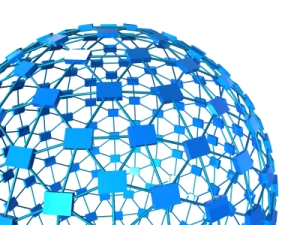 I was on the road for about seven days last week and airports, airplanes, and hotel rooms seem to be one of the best times for me to catch up on periodicals and journals that I enjoy reading. I was truly moved by the latest issue of HBR and the interview with Cory Doctorow, the science fiction writer. I quote him:
I was on the road for about seven days last week and airports, airplanes, and hotel rooms seem to be one of the best times for me to catch up on periodicals and journals that I enjoy reading. I was truly moved by the latest issue of HBR and the interview with Cory Doctorow, the science fiction writer. I quote him:
“The universal access to all human knowledge is the realization of one of the most important dreams of humanity, and I’d argue that complaining about it [preventing access to it]is morally indefensible.”
What is collective human knowledge? As I think about it, I like to take a historic perspective and bring that viewpoint to the contemporary world. Historically, human knowledge literally existed in our individual minds, our memory banks. Knowledge transferred from those who had it — parents or elders or mentors, to those who did not. So knowledge transfer was inherently limited by geography (you could only get knowledge with those you had access to) and by time (how many people could you meet in your life). Then schools and libraries evolved and knowledge begun to also exist in these repositories. It was a place to store knowledge for those harnessing it, and for others to access it. So knowledge became scalable and accessible to more.
I realize I am grossly oversimplifying several thousands of years here, but fast forwarding to today, knowledge now also exists on a platform (Internet) that can be accessed for (1) creation (2) storage and (3) retrieval in an instant-learning modality. With close to 14 billion devices in operation worldwide that can access the Internet (note that’s twice as many as there are people), you can see why I was moved by Cory’s perspective. This is truly unprecedented times we are living in. There should be no reason anyone in this world who has this access, and that means all of us in the workplace, should not leverage this access to make better decisions and perform at higher levels. Why does it matter whether this knowledge is internal or external, in a person or a community, in an e format or a virtual one … it should not. Those of us that allow ourselves and our employees access to this collective human knowledge are allowing ourselves to reach our highest potential as human beings. There has never been another generation of human beings that has had this much access to this much knowledge. How are you capitalizing on this fact?


Pingback: 2010 Trends Continued… Flatter Organizations « Professional Development
Pingback: Eliminate Old Barriers « Professional Development
Pingback: Eliminate Old Barriers | HRM Today
Pingback: Accelerating Growth « Professional Development